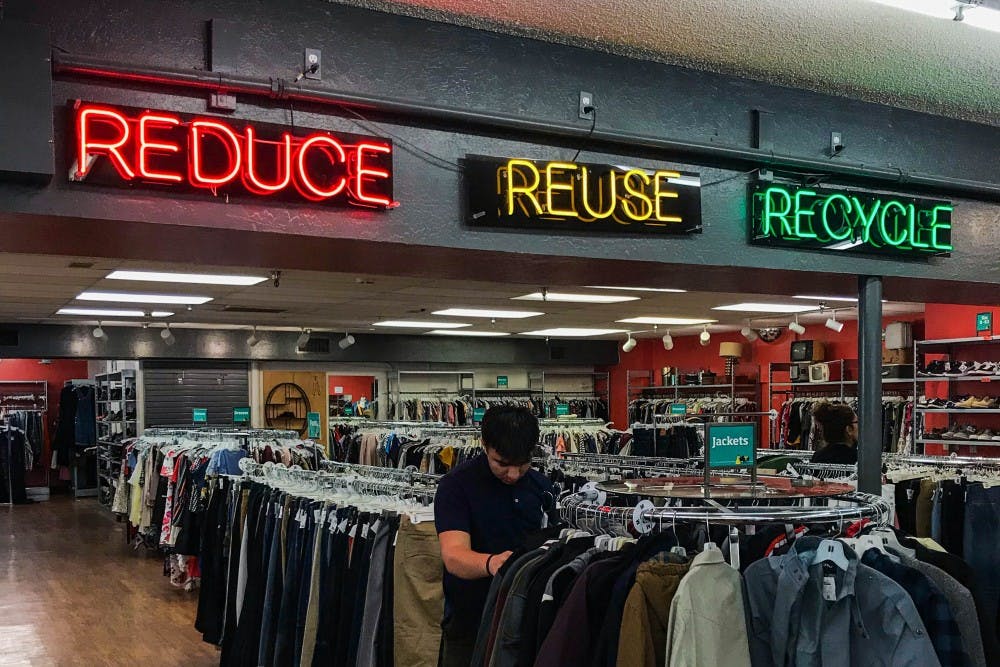There are pros and cons to fast fashion.
On one hand, consumers are able to purchase new, trendy clothing at low prices. On the other hand, environmental corners are cut in order to produce quick, cheap garments, ready for individuals hopping on the next fashion trend, which is detrimental to the environment.
In a report published this year in Nature, textile production produces 1.2 billion tonnes of carbon dioxide per year, making it one of the most polluting industries out there.
According to the report, there are more emissions from textiles than international flights and overseas shipping together.
The report also shared that large proportions of clothing manufactured, especially in fast fashion, occur in countries that rely on coal-fueled power plants. This increases the carbon footprint of the industry.
Fast fashion brands like Fashion Nova, ZAFUL and Forever 21 can be cute and trendy, but controversy has arisen due to the unsustainable practices these companies partake in.
A way students can steer clear from fast fashion brands while shopping with a sustainable mindset is to purchase clothes from eco-friendly brands that value sustainable practices.
Climate conscious brands like Threads 4 Thought, Alternative Apparel, Patagonia and more focus on using sustainable textiles and repurposed fabrics, minimizing their environmental impact.
The motto of eco-friendly company Reformation, according to its website, is: “Being naked is the #1 most sustainable option. We’re #2.”
The brand makes clothing that not only allows their customers to feel good, but also allows them to feel environmentally friendly. Brands like Patagonia go to lengths to show buyers where the clothes come from.
However, some fast fashion bands like H&M have made moves towards being more sustainable, like creating the Conscious Collection by H&M. This collection offers a range of organic and sustainable-focused clothing.
Students can also purchase locally-made fashion.
Local boutiques like Bunky Boutique focuses on providing clothing and other items from local and independent designers.
Shopping from locally-made fashion boutiques diminishes carbon emissions that are tied to transporting clothes, while also supporting local designers.
Some sustainable clothing brands can side more on the pricier side, but a cheaper option for students looking to shop sustainably is thrifting
Thrifting is not only trendy, but it is also great for the environment. Consumers get to reuse articles of clothing, sometimes altering them to fit new trends, thus eliminating waste while keeping up with the newest styles.
Students should also be mindful of how they dispose of their own clothing, as tossing clothes in good condition is wasteful. Instead, students can either donate or sell their clothes to second-hand stores.
Whether students are donating clothes to thrift shops like Goodwill or selling clothes to stores like Buffalo Exchange, these actions could decrease their carbon footprint.
Read more here: There are many options for students to find thrifted gear near ASU
Thrifting is a great way to live by the sustainable motto, "Reduce, reuse, recycle."
In a world where trends are constantly changing, being mindful of where you shop and how you shop can help decrease your carbon footprint while promoting climate-friendly brands, decreasing landfill waste and supporting local businesses.
Reach the reporter at jlmyer10@asu.edu or follow @jessiemy94 on Twitter.
Like The State Press on Facebook and follow @statepress on Twitter.




